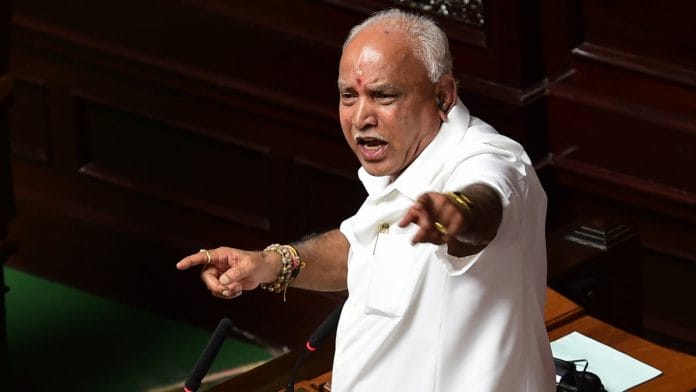Bengaluru: The Karnataka government wants to give more teeth to the Narcotics Drugs and Psychotropic Substances (NDPS) Act as a massive police operation cracking down on drug rackets is underway.
To this end, the state has begun consultations with the senior faculty of the National Law School India University (NLSIU).
“We will do all that we can to ensure that all those involved in this drug racket will be exposed. We have managed to break the dark web and we have decided to crack down not just on customers, but also the kingpins, the international drug suppliers and their contacts as well,” state Home Minister Basavaraj Bommai said in an interview to Deccan Herald.
Earlier last week, Bommai told media that he had spoken to a few professors with expertise in the NDPS law who had pointed out that the laws need to be strengthened.
His comments come at a time the police arrested actors Sanjjana Galrani and Ragini Dwivedi and is investigating an alleged drug racket believed to be operating within the Kannada film industry. The name of the son of former Karnataka minister Jeevaraj Alva has also surfaced in the investigation as well as that of a celebrity party planner.
Also read: Drugs, flashy parties, police uniform — ‘Sandalwood scandal’ is watertight case, police say
Problems with the law
Officials working with the state home department on the issue told ThePrint that though the NDPS is a central law, the state government can frame rules which will be applicable under its jurisdiction, making it more stringent and easier for states to curb these illegal activities.
Speaking to ThePrint, former Karnataka director general of police, S.T. Ramesh said that the NDPS Act is already quite formidable as it distinguishes between drug users, suppliers, traders, traffickers and those who possess drugs.
However, problems arise when it comes to enforcement and procedural protocol, he said.
“One of the (problems is) the need for greater enforcement by the agencies which include the police, NCB (Narcotics Control Bureau) and the excise department … The agencies tend to be lax in identifying these drug links and should be more proactive in their approach,” Ramesh said.
The second issue he noted was in classifying the drugs. The ‘certified reference standard’ mentioned for standard drugs do not conform to designer drugs.
“The protocols of testing are different and laboratories are faced with the challenge of having to undergo trial and error to prove that a seized substance is contraband,” he said.
A senior police official told ThePrint that under the current law, lawyers have managed to find loopholes to present their clients as victims and get them released on bail or entirely acquitted on “technical grounds”.
On how the law currently works, a senior Supreme court lawyer said an accused has several options, such as looking for procedural lapses in evidence collection, and distinguishing between being at the scene of the crime and having actual knowledge of the crime.
Also read: Karnataka will soon have anti-drug committees in all schools and colleges, minister says
Police busts in the past weeks
In the past few weeks, the police have made a series of arrests of drug dealers. On 17 September, police seized 9,872 kilograms of ganja (marijuana) when they uncovered a cultivation racket in the Chitradurga district.
A few days before that, the state’s Central Crime Branch arrested a drug peddler, Vikram Khileri, for selling ‘brown sugar’, which is low grade heroin, in Karnataka and Tamil Nadu. Khileri had dubbed his product ‘Saibaba’s prasad’.
On 9 September, an accused directed police to a farmhouse that was storing 1.2 tons of ganja in North Karnataka’s Kalburgi. The same week, around 250 kilograms of marijuana and other synthetic drugs were seized in Bengaluru.
S. Murugan, additional commissioner (East), told The Print that a total of 28 people were arrested in the second week of September alone, and 14 seizures valued at around Rs 1.4 crores were made. The haul included LSD, cocaine, MDMA tablets and other narcotic drugs purchased through the dark web using bitcoins. Among the arrested are 11 drug dealers.
With more details of the rackets unravelling, Karnataka Chief Minister B.S. Yediyurappa has instructed deputy commissioners across all districts to ensure that no dealer or consumer be spared. He blamed the previous governments for the current size of the drug problem in the state, stating they had failed to curb the menace.
“Previous governments have turned a blind eye to this racket that has been going on for more than a decade,” Yediyurappa had said.
Before Yediyurappa’s BJP government came to power in 2019, the H.D. Kumaraswamy-led JD(S)-Congress coalition government was in power for a little over a year. Before that, Congress’ Siddaramaiah held a full term.
Also read: Rhea Chakraborty allegedly procured drugs — What NDPS Act says, how long she’ll be in jail if guilty






